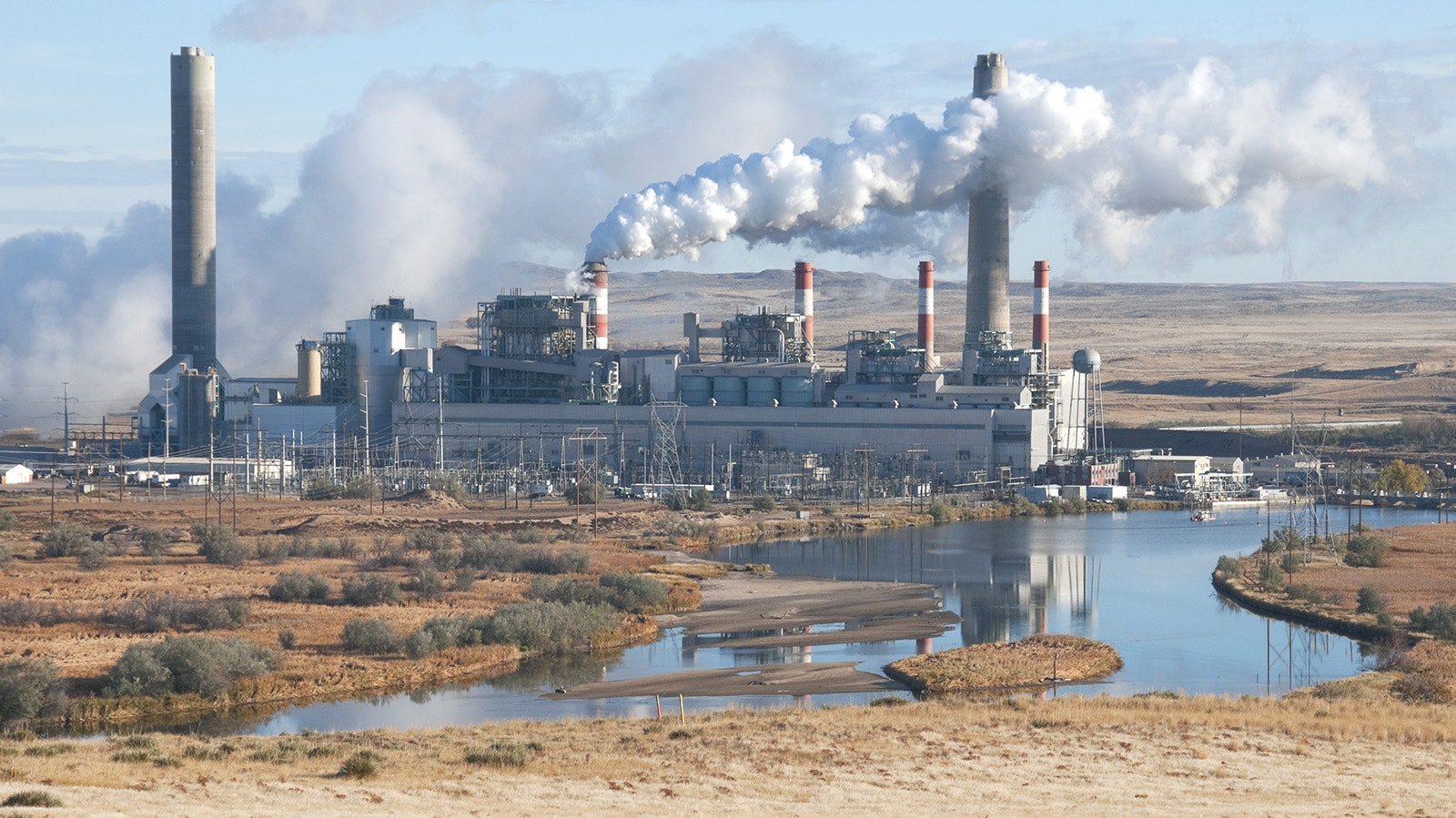U.S. Rep. Harriet Hageman believes President Joe Biden’s administration is “hell-bent” on killing American energy independence.
On Tuesday, she reacted to the Biden administration’s recent commitment to not build any more new coal plants and shut down existing ones by 2035.
“Yet another move by a Biden administration hell-bent on ending our energy independence,” she posted on X. “Coal will be needed for generations to come.”
U.S. Sen. Cynthia Lummis agreed and said Tuesday that people should prepare for rolling blackouts when considering the recent focus and incentives provided to people to buy electric vehicles.
“The Biden administration is planning on eliminating coal, which powers 20% of the grid, while increasing grid demand by nearly 40% by 2035 with EV mandates,” she said.
U.S. Special Envoy John Kerry announced over the weekend that America will join the Powering Past Coal Alliance, a shared commitment with 56 other countries to not build any new coal-fired power plants and phase out existing plants.
“We will be working to accelerate unabated coal phase-out across the world, building stronger economies and more resilient communities,” Kerry said in a statement. “The first step is to stop making the problem worse: stop building new unabated coal power plants.”
The commitment is part of the Biden administration’s larger campaign to address climate change by reducing and moving away from fossil fuels.
“This decision penalizes American consumers and producers, and only ensures that the United States will increasingly rely on dictators and despots from adversarial nations for the energy we need,” Hageman said.
Energy Independence
Energy independence is the security maintained by a country’s ability to not have to import energy resources to meet its demands. Although green energy production has significantly grown in the last decade, it has yet to overtake fossil fuels for overall production and reliability in the U.S. Recent foreign affairs such as the war in Ukraine have impacted energy prices in the U.S. as a result of a decline in supply.
Coal is considered one of the most polluting of all fossil fuels but has also become substantially cleaner and is one of the most reliable sources of energy in the U.S.
It also still plays a significant role in Wyoming’s economy.
Travis Deti, executive director of the Wyoming Mining Association, said America is decades away from being adequately able to replace the energy created through coal production. That makes a 2035 target date to end coal more problematic.
Coal produced $173.5 million in severance taxes for Wyoming in 2023 on a $2.6 billion total assessed valuation from the year before. There are 12 active coal plants in Wyoming that employ 5,167 people, according to a 2022 state mine inspector report. This is down from a high of 7,000 employees in 2011.
As of October, just under 20% of U.S. electricity is powered by coal, according to the U.S. Department of Energy. The amount of coal burned in the United States last year is less than half what it was in 2008, when Wyoming coal accounted for more than 50% of the nation’s electricity production.
Although the state’s Consensus Revenue Estimating Group elevated its original projection for total coal produced and per-ton prices for 2023 last month, it’s still predicting a decline in the production and price received for the resource into the future.
Deti said Wyoming is producing about half as much coal today as it was in the late 2000s, but no Cowboy State plants have completely shut down during his 12 years with the Mining Association, although some future closures have been announced. He said 2023 production will end up being only slightly lower than the year before.
“We’re going to have another relatively good year,” he said.

Other Superpowers Not On Board
The United States has attempted to convince other superpowers like China and India to join in on moving away from coal, but instead these countries have ramped up their coal production and are not members of the Powering Past Coal Alliance.
Rick Whitbeck, Alaska state director for Power The Future, a nonprofit pro-energy organization, said the Biden administration’s commitment to moving away from coal and other fossil fuels only puts the country behind its competitors in the world economy and does nothing to make the world a better place.
“If you’re telling the U.S. it can no longer power itself without coal, you’re telling the rest of the world America is weakening itself,” he said. “China is celebrating.”
Whitbeck also said the creation of materials used for green energy like solar panels and wind turbines necessitates the use of coal.
Deti said Biden’s latest commitment is merely a continuation of the administration’s resistance to any kind of fossil fuel production. He said a common tactic used by the administration rather than directly rejecting projects is to stall or indefinitely postpone making decisions on permit applications, a move Deti said has proven to be as effective as any kind of new rulemaking.
“The Biden admin is slow-walking permitting for Wyoming coal projects as a backdoor way to implement the Green New Deal,” Lummis said on X. “It is shameful that the regulatory process has become polluted by radical politics instead of following the law and delivering affordable energy to America.”
Last week, the Black Butte Co. coal mine outside Rock Springs confirmed it’s laying off 19 employees as a result of not being approved for an expansion permit from the Biden administration, although some of the laid off employees questioned that being the real reason for their termination.
Kerry announced the decision at the U.N. Conference of the Parties event in the United Arab Emirates, where he also committed $17 million for a climate reparations fund.
“Millions for the climate crusade but nothing for miners,” Lummis commented on X.
No date has been given about when the existing coal plants would have to go, but other Biden regulatory actions and international commitments already in the works have set 2035 as a target date.
Oil And Gas Too …
The Biden administration also Saturday issued a final rule aimed at reducing methane emissions, targeting the U.S. oil and natural gas industry for its role in global warming.
The 1,690-page rule will sharply reduce methane generated by the oil and gas industry, promote the use of cutting-edge methane detection technologies that aims to deliver significant public health benefits in the form of reduced hospital visits, lost school days and even deaths.
The rule was also announced at the U.N. climate conference.
Gov. Mark Gordon issued a statement Monday criticizing the move.
“While releasing the final rule regulating methane emissions from oil and gas facilities during the COP28 United Nations climate summit in Dubai is obvious and shallow grandstanding which might make for great theater among climate activists, the effect at home means higher fuel prices and additional burdens on Wyoming producers,” he said. “Once more, we are saddled with a major rule substantially increasing the cost for Wyoming citizens, the Department of Environmental Quality (DEQ), Wyoming Oil and Gas Commission and Wyoming producers.”
Gordon said the Environmental Protection Agency (EPA) did little to reach out to DEQ about the proposed rule.
The Sheridan-based Powder River Basin Resource Council supports the rule, which will reduce flaring at oil field sites.
“We are pleased to see EPA doing more to stop this dangerous and wasteful practice,” the group posted on X on Monday. “This rule is a win for rural communities throughout Wyoming.”
Deti said oil and natural gas appeared to have a safer future in the past when former President Barack Obama’s administration mostly focused on targeting coal in its efforts to reduce carbon emissions. Now that has evolved to a situation under Biden where all fossil fuels are under scrutiny.
“We’re headed down a very very rickety train track here and who’s driving the train?” Deti questioned. “They’re not answering any questions and it’s very ideologically driven.”
Although Wyoming is one of the lowest overall methane producers, it has the highest emissions rate in the country and emissions per megawatt hour of electricity produced based on its per capita population. Wyoming’s high score in emissions per capita is because in part of its coal-fired power plants, but also because the state produces a large amount of energy for other states. According to the U.S. Energy Information Administration, Wyoming exports 12 times more energy than it consumes.
Gordon said companies in Wyoming are already working on ways to reduce their emissions.
“The additional costs of implementation will be passed on to consumers, both inside and outside of Wyoming,” he said. “D.C. is attempting to fix a problem that is already being addressed.”
Leo Wolfson can be reached at leo@cowboystatedaily.com.





